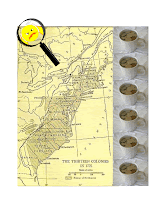So what? Even though we and the universe are real, Immanuel Kant (1724-1804) felt that only the phenomena of the mind could be known, not the noumena, which was his term for the real world.[1] Trying to work this out, the person may think:
- Can we know anything about the real world?
We ask the other person, “What do you mean by that?”
Then ask for their evidence, “How did you come to that conclusion?”
Listen and ask follow-up questions. (Remember the mean face with covered ears and the magnifying glass.)
A follow-up might be: If the real world is unknowable, then don’t we now know something about the real world?
Norman Geisler argues “First, if Kant claims that he can’t know anything about the real world (the thing in itself) then how does he know the real world is there? And second, his view is self-defeating because he claims that you can’t know anything about the real world while asserting that he knows that the real world is unknowable!”
Yes, I know this:
- Kant knew something about the real world (it was unknowable).
We can know what Kant knew.
Therefore, we can know something about the real world.
Can we know anything about the real world?
If we can know anything about the real world, even if all we know is that it is unknowable, then we have proved that we can in fact know something about the real world.
[1] Italics in original: Page 61, I Don’t Have Enough Faith to be an Atheist, by Norman Geisler and Frank Turek

No comments:
Post a Comment